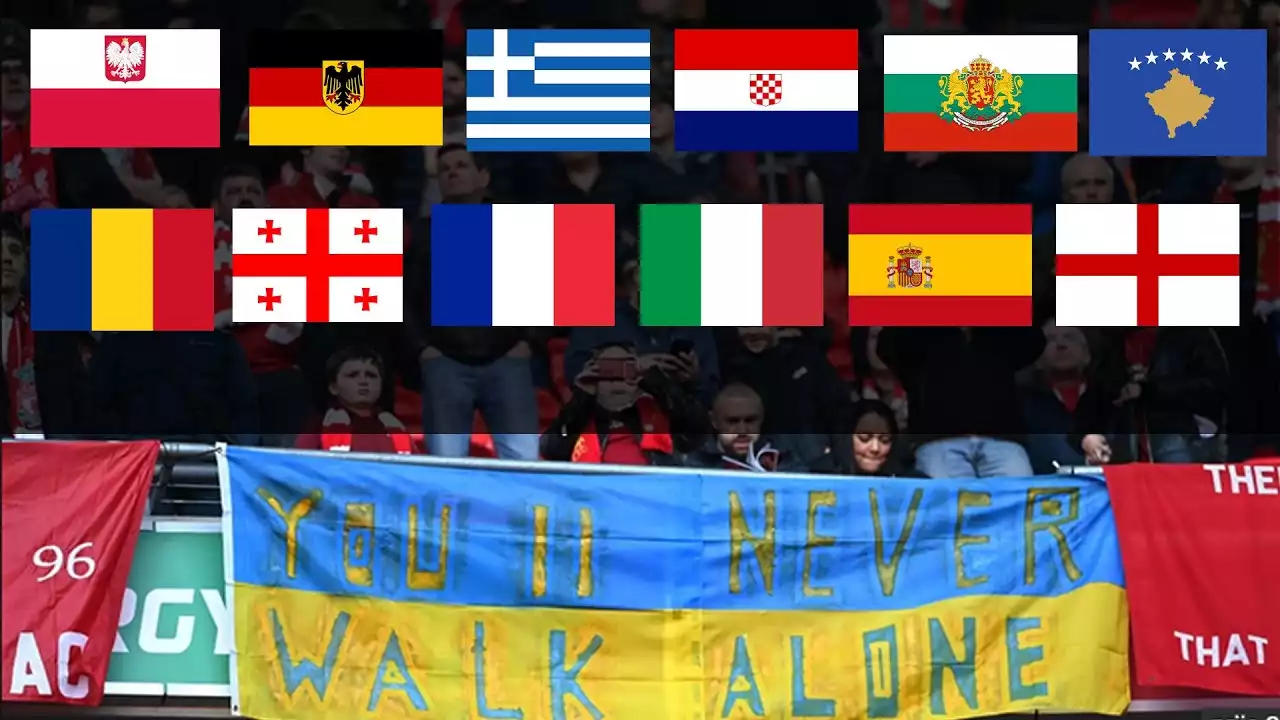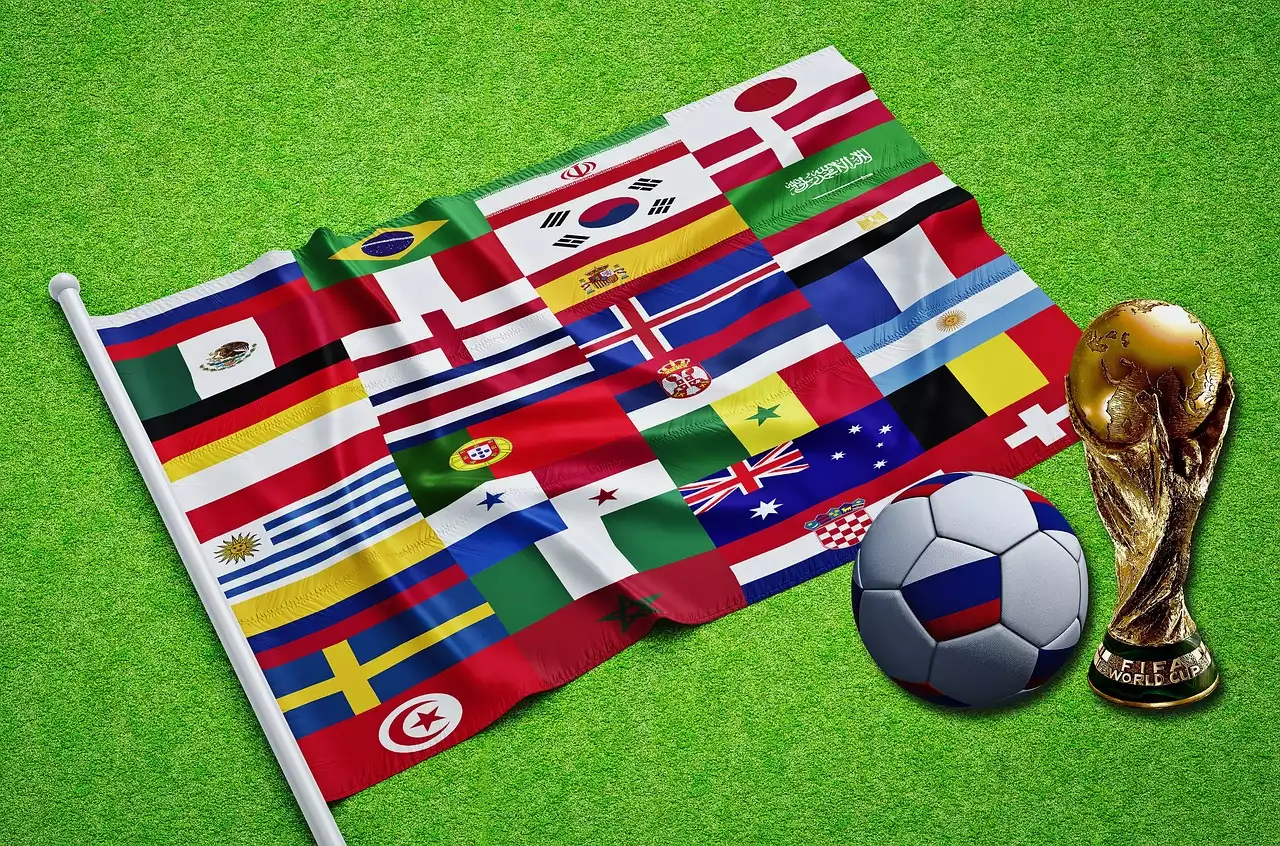What makes a successful team in the UEFA Nations League?
The UEFA Nations League has become a platform for the best national teams in Europe to showcase their skills and compete against each other. The success of a team in this tournament is determined by various factors that go beyond individual talent. It requires a combination of tactical brilliance, exceptional teamwork, and a strong sense of national pride.
A successful team in the UEFA Nations League understands the importance of a well-balanced squad. They have a mix of experienced players who provide leadership and guidance, as well as young talents who inject energy and creativity into the team. These teams also have a clear game plan and adapt their tactics based on the strengths and weaknesses of their opponents.
The top 5 most successful countries in UEFA Nations League history
1. Germany
Germany, the most successful team in World Cup history, has carried their dominance into the UEFA Nations League. Their tactical brilliance and disciplined approach have made them a force to be reckoned with. With players like Manuel Neuer, Joshua Kimmich, and Thomas Muller, Germany has consistently performed at the highest level in this tournament.
2. Spain
Spain, known for their possession-based style of play, has been a dominant force in the UEFA Nations League. Their intricate passing and fluid movement have mesmerized opponents. Led by players like Sergio Ramos, Andres Iniesta, and David Silva, Spain has consistently exhibited exceptional skill and creativity on the field.
3. France
The current World Cup champions, France, have also left their mark on the UEFA Nations League. With a squad brimming with talent, including Kylian Mbappe, Antoine Griezmann, and N'Golo Kante, France has showcased their strength and versatility in this tournament. Their ability to seamlessly blend defensive solidity with attacking flair has been key to their success.
4. Portugal
Portugal, led by their talismanic captain Cristiano Ronaldo, has been a formidable team in the UEFA Nations League. Known for their tactical astuteness, Portugal has consistently been a tough opponent for any team. Their ability to grind out results and capitalize on key opportunities has helped them achieve success in this tournament.
5. Netherlands
The Netherlands, historically known for their Total Football philosophy, has consistently challenged the traditional powerhouses in the UEFA Nations League. With a focus on attacking football and innovative strategies, the Dutch team has entertained fans with their attractive style of play. Players like Virgil van Dijk, Frenkie de Jong, and Matthijs de Ligt have been instrumental in their success.
Key factors contributing to their success
The success of these five countries in the UEFA Nations League can be attributed to several key factors. First and foremost, these teams have exceptional managers who understand the game and have the ability to devise effective strategies. They are able to bring out the best in their players and create a cohesive unit on the field.
Another important factor is the quality of players within these teams. Each country has a pool of talented individuals who excel in their respective roles. From goalkeepers who make crucial saves to forwards who score important goals, these teams have a balanced mix of skill and experience.
Teamwork and team spirit also play a significant role in the success of these countries. The players have a strong bond and a shared goal of achieving greatness for their nation. This unity translates into a cohesive on-field performance, where players support and trust each other.
Analysis of their performance in past tournaments
A closer look at the performance of these successful countries in past UEFA Nations League tournaments reveals a consistent trend of excellence. These teams have consistently reached the latter stages of the tournament, showcasing their ability to perform under pressure.
Germany, for example, has won the UEFA Nations League title twice and finished as runners-up once. Their ability to perform at the highest level consistently sets them apart from other teams. Spain, France, Portugal, and the Netherlands have also consistently reached the semi-finals and finals, proving their status as top teams in Europe.
Tactics and strategies employed by successful teams
Each of these successful countries employs different tactics and strategies to gain an edge over their opponents. Germany, known for their disciplined and organized approach, focuses on maintaining possession and creating scoring opportunities through precise passing and movement off the ball.
Spain, on the other hand, relies on their trademark possession-based style of play. They prioritize ball retention and use quick, short passes to break down opposition defenses. Their ability to control the tempo of the game and dictate play has been key to their success.
France combines defensive solidity with swift counter-attacks, utilizing the pace and skill of their forwards to devastating effect. Portugal, with their tactical astuteness, often adopts a pragmatic approach, focusing on defensive solidity while relying on the individual brilliance of players like Ronaldo to make the difference.
The Netherlands, true to their Total Football philosophy, emphasizes attacking play and fluid movement. They prioritize quick transitions and use their technical prowess to create scoring opportunities. Their innovative playing style often catches opponents off guard and has been a key factor in their success.
Player profiles of key contributors
The success of these countries in the UEFA Nations League would not be possible without the contributions of their star players. Germany relies on the leadership and shot-stopping abilities of Manuel Neuer, while Joshua Kimmich's versatility and tenacity in midfield provide a solid foundation for the team.
Spain's success is built on the skills of players like Sergio Ramos, who provides defensive stability and leadership, and Andres Iniesta, whose vision and creativity unlock opposition defenses. David Silva's technical brilliance and ability to control the game have also been instrumental in Spain's success.
France boasts a wealth of talent, with players like Kylian Mbappe, Antoine Griezmann, and N'Golo Kante leading the way. Mbappe's blistering pace, Griezmann's clinical finishing, and Kante's tireless work rate have all played a significant role in France's triumphs.
Portugal's success largely rests on the shoulders of Cristiano Ronaldo, whose goal-scoring prowess and leadership have propelled the team forward. His ability to deliver in crucial moments has been a decisive factor in Portugal's success in the UEFA Nations League.
The Netherlands' young stars, such as Virgil van Dijk, Frenkie de Jong, and Matthijs de Ligt, have been crucial contributors to their success. Van Dijk's commanding presence in defense, De Jong's vision and creativity in midfield, and De Ligt's composure and defensive skills have all played a significant role in the Netherlands' impressive performances.
Challenges faced by successful teams in maintaining their dominance
Maintaining dominance in the UEFA Nations League is not an easy task. Successful teams face several challenges, including increased expectations and the constant pressure to perform. Opponents also study their tactics and strategies, making it harder for these teams to surprise their rivals.
Injuries to key players can also have a significant impact on a team's performance. The absence of a star player can disrupt the balance and cohesion of the squad. Successful teams must have depth in their squad to cope with such setbacks.
Furthermore, complacency can be a major challenge for successful teams. After achieving success, there is a risk of losing the hunger and drive that propelled them to the top. Maintaining motivation and constantly striving for improvement is crucial for sustained success.
Lessons for aspiring teams to learn from these successful countries
Aspiring teams can learn valuable lessons from the success of these countries in the UEFA Nations League. First and foremost, they should focus on building a strong team culture and fostering a sense of national pride. This unity and belief in a common goal can drive a team to achieve great things.
Investing in youth development programs is also crucial. Identifying and nurturing young talents can provide a pipeline of skilled players who can contribute to the team's success in the long run. Additionally, aspiring teams should study and adapt successful teams' tactics and strategies to suit their own playing style.
Finally, aspiring teams should never be afraid to take risks and innovate. The successful countries in the UEFA Nations League have demonstrated that a bold approach can yield great rewards. Embracing creativity and thinking outside the box can set a team apart from their competitors.










